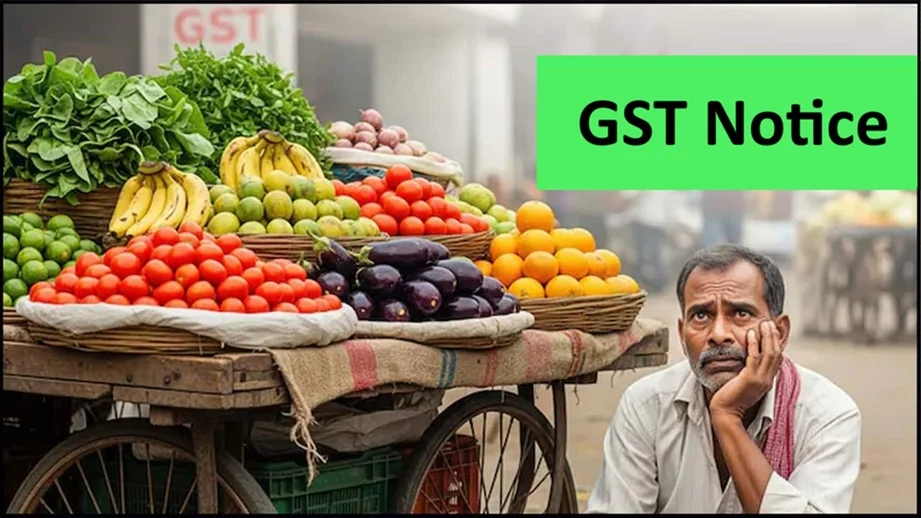Haveri, Karnataka | July 22, 2025: A humble vegetable vendor from Haveri has found himself at the center of a tax controversy after receiving a Goods and Services Tax (GST) notice demanding ₹29 lakh, despite not being a registered GST taxpayer.
Shankargouda Hadimani, who has been running a small vegetable stall near the Municipal High School grounds for the past four years, received the shock notice from GST officials based on his digital transactions totaling ₹1.63 crore over that period, according to a report by Deccan Herald.
“I buy vegetables from farmers and sell them at my shop. I accept UPI payments because that’s what customers prefer. I file income tax returns regularly. How can I suddenly pay ₹29 lakh?” a distressed Shankargouda asked.
Digital Payments Trigger Tax Scrutiny
The GST notice claimed that Shankargouda’s UPI and digital wallet transactions added up to ₹1.63 crore, and thus he owed ₹29 lakh in GST. However, he sells only fresh, unprocessed vegetables, which are exempt from GST under current tax laws.
India’s GST regime does not levy any tax on fresh fruits and vegetables that are unprocessed, unpackaged, and sold in the open market. Tax rates apply only to packaged, processed, or preserved items, such as frozen vegetables or those that are dried and labelled.
GST for Small Vendors: What the Law Says
Experts point out that digital transaction volume alone does not determine tax liability, especially when the goods sold are tax-exempt. However, such high volumes may flag concerns for potential tax evasion or misuse of digital platforms.
For small businesses, GST registration is mandatory only if their aggregate annual turnover exceeds ₹40 lakh (in most states, for goods). But in Shankargouda’s case, even if the turnover did exceed this limit, GST would still not apply if he exclusively sells zero-rated goods like fresh vegetables.
In terms of income tax, vendors must file returns if their income exceeds ₹2.5 lakh annually. Many small traders opt for the presumptive taxation scheme (ITR-4), which simplifies reporting by allowing them to declare a flat percentage of their revenue as income.
Vendor Stops Accepting UPI Payments
The tax notice has had an immediate chilling effect on Shankargouda’s business. Fearing further complications, he has now stopped accepting UPI payments altogether.
“I started accepting digital payments for convenience and transparency. Now it has become a nightmare,” he said.
Larger Concerns About Tax Interpretation
The incident has raised broader concerns about the interpretation of digital payments as indicators of taxable turnover, particularly for low-margin, zero-rated businesses. Experts suggest the case highlights a need for better awareness among tax officials and vendors alike.
Legal analysts believe that Shankargouda can challenge the demand, especially if he can prove his goods are tax-exempt and the transactions relate exclusively to fresh produce.
Key Facts:
-
Tax Demanded: ₹29 lakh
-
Total Digital Transactions: ₹1.63 crore (over 4 years)
-
GST on Fresh Vegetables: 0%
-
GST Registration Threshold: ₹40 lakh annual turnover (for goods)
-
Current ITR Filing Deadline (FY 24–25): September 15, 2025
This case shines a spotlight on the challenges faced by small traders in navigating India’s digital and tax ecosystems, and underscores the urgent need for greater clarity and on-ground support to ensure that policy intent aligns with practical enforcement.










